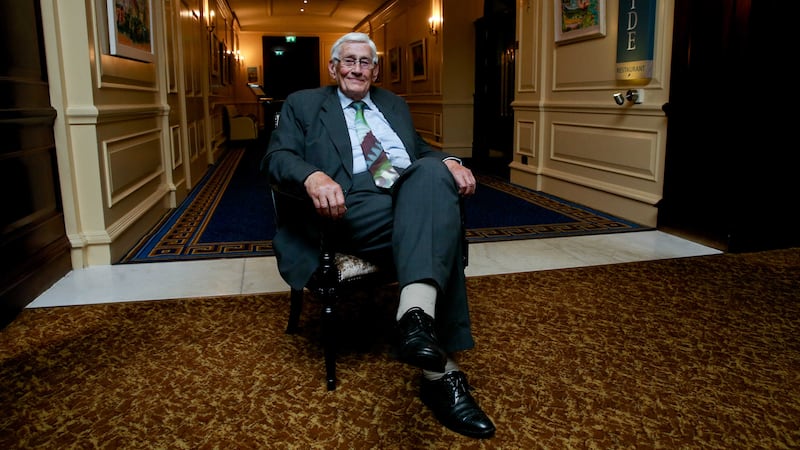SEAMUS Mallon has been a bit uppity of late.
Last September, in an interview with the Irish Catholic, he said that Bertie Ahern and Tony Blair "allowed Sinn Fein to set the agenda because they wanted the big handshakes and to be known throughout the world as the men of peace who had brought the warring tribes together.
"(But) Blair had a moral position on everything and had no compunction about acting immorally."
And when asked if he regarded Blair as a hypocrite, he replied: "Oh God yes. I have no problem with that at all."
In a speech in Dublin on October 10 he said: "The shortfall in the politics of reconciliation is the challenge that remains for Alasdair McDonnell and the party.
"Alasdair and his colleagues will have to deal with the complex political legacy of Northern Ireland."
Yet a few weeks later he decided to support Colum Eastwood: "Confidence and benevolence are almost totally absent today from our political structures – a new leader of the SDLP with a new style of leadership can end this stagnation and negativity and return us all to the path of proper peace building."
He has claimed that the Good Friday Agreement — like partition, the Stormont Parliament and Sunningdale—"is a contrivance and won’t last forever.”
He accuses the British and Irish governments of accommodating the Sinn Fein agenda and of throwing David Trimble — and the SDLP — “out of the boat when they called the election in 2003."
And then, for good measure, he had a pop at John Hume’s relationship with Sinn Fein:
"He gave them the thing that they were looking for and that was a respectable image in the United States.
"I think he was so immersed in the whole business of getting peace that he didn't, or couldn't, come to grips with the fact that his presence with them gave them, especially in the United States and in Ireland, a status that almost bordered on validating their actions of the past 30 years. They played him like a 3lb trout."
What Mallon didn’t mention is that the Hume/Sinn Fein relationship, which dated back to the Hume/Adams talks in 1988 and then again in 1993, also did huge damage to the relationship between the SDLP and mainstream unionism.
Indeed John Taylor’s response to those talks was to refer to a `pan-nationalist front, with the SDLP riding on the backs of the IRA to remove Northern Ireland from the United Kingdom.'
So yes, Hume was played like a trout: played to improve Sinn Fein’s image, played to nudge open doors for them in London, Dublin and Washington and played to damage the relationship between the SDLP and mainstream unionism.
From that point onwards, about 30 months after the Anglo-Irish Agreement, Sinn Fein targeted the SDLP to be ‘played’ and eventually eclipsed.
They did much the same thing to the UUP between 1997 and 2003, when they didn’t lift a finger to help Trimble when he most needed it.
Mind you, Mallon didn’t do much himself when Trimble needed help to face down Sinn Fein.
Mallon says that he is angry that “we in the SDLP did not get due recognition and have now been left on the sidelines”.
But reading and listening to what he has been saying in the last few months suggests that there is something deeper going on.
John Hume and David Trimble have been lauded and applauded across the world and are knee deep in awards, including the Nobel Peace Prize.
Ian Paisley was politically rehabilitated and lionized. Even Peter Robinson is praised for helping to save the peace process from 2005 onwards.
Mallon, on the other hand, seems to have been eased out of the main frame. Sinn Fein now holds his former Westminster seat, Newry and Armagh.
He seems in danger of becoming one of the forgotten architects of the Good Friday Agreement. That must hurt.
He’s been a political activist since the mid-1960s, was first elected in 1973 and was a key player and strategist in the SDLP until 2005.
Of course, he didn’t devote his life to politics for what we have now: “From my political perspective I want Britain out of here.”
The party he helped to build is struggling for relevance and survival. The nationalism he championed for most of his life has been eclipsed by Sinn Fein.
The better relationship he promoted between unionism and nationalism has been replaced with a DUP/Sinn Fein loggerheaded Executive. His “Sunningdale for slow learners” morphed into a two-party/two-state Northern Ireland.
It’s no wonder he’s uppity. Assessing your own legacy is rarely a comforting experience for most politicians.








